Results
-
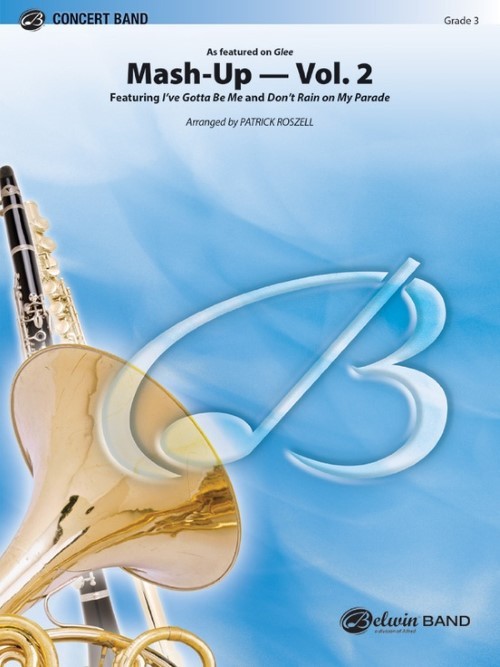 £66.95
£66.95Mash-Up Vol.2 (Concert Band - Score and Parts) - Roszell, Patrick
The Broadway classic "I've Gotta Be Me" and Barbra Streisand's iconic "Don't Rain on My Parade" meet head-on in this exciting "Mash-Up" drawn from tunes performed on the popular television show Glee. This arrangement is presented in a high-energy style that allows for teaching of swing techniques.Duration: 2:15
Estimated dispatch 7-14 working days
-
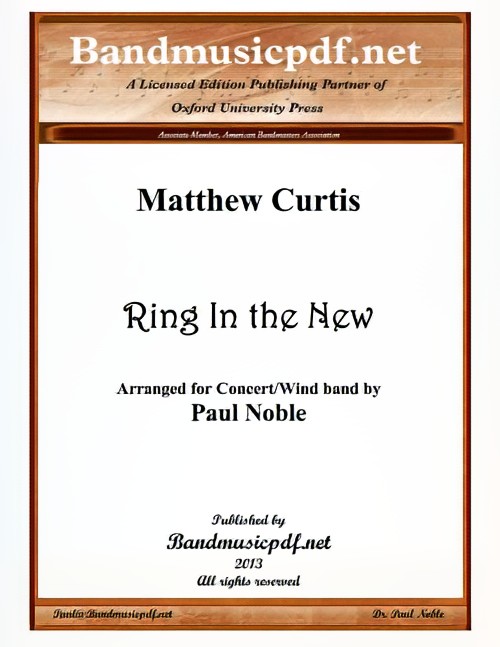 £90.00
£90.00Ring in the New (Concert Band - Score and Parts) - Curtis, Matthew - Noble, Paul
Ring in the New is presented as a Concert Overture, but could also be presented equally as a Concert March. It is a perfect example of Matthew Curtis' compositional technique, so well-crafted and beautifully orchestrated. This piece of British Light Music will surely delight audiences and challenge bands to show off their best technique and musical understanding.
Estimated dispatch 7-14 working days
-
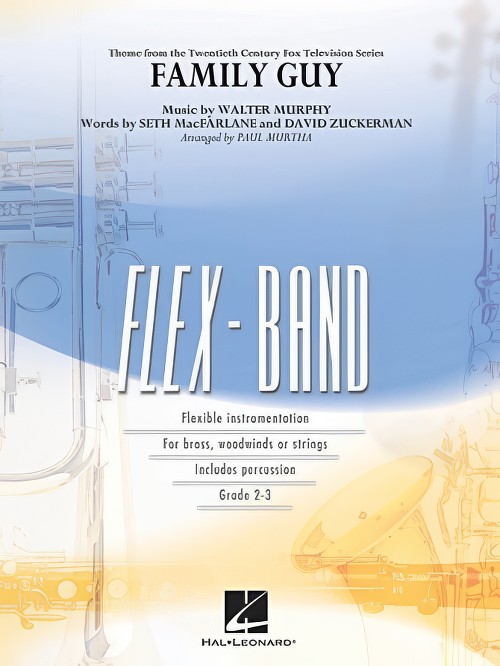 £47.50
£47.50Family Guy, Theme from (Flexible Ensemble - Score and Parts) - Murtha, Paul
From the wildly popular animated TV series Family Guy comes this swingin' theme. Scored with flexible instrumentation in the style of a Las Vegas show band, this is sure to be a hit with all audiences
Estimated dispatch 7-14 working days
-
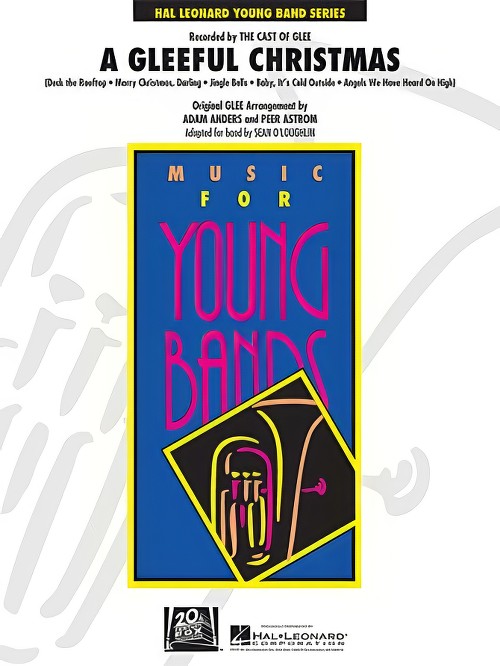 £57.50
£57.50A Gleeful Christmas (Concert Band - Score and Part) - O'Loughlin, Sean
Showcasing holiday highlights from the TV series Glee, here is an attractive medley of favourites in the distinctive settings featured on the show.Includes:Deck the RooftopMerry Christmas, DarlingJingle BellsBaby It's Cold OutsideAngels We Have Heard on High
Estimated dispatch 7-14 working days
-
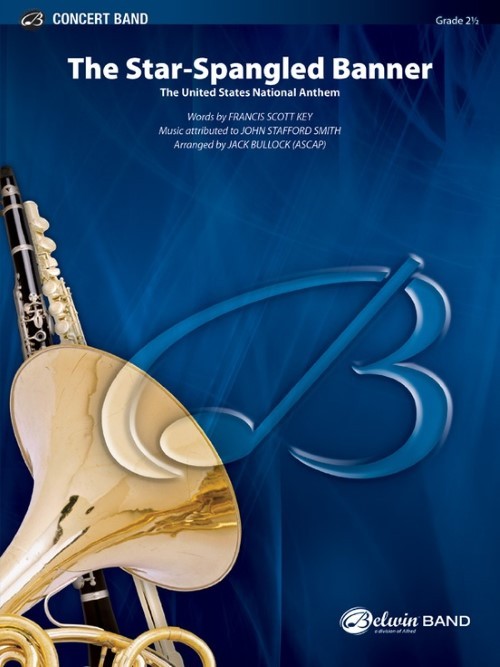 £58.50
£58.50The Star-Spangled Banner (Concert Band - Score and Parts) - Key & Smith - Bullock, Jack
Why another arrangement of "The Star-Spangled Banner?" While watching a TV sports show, Dr. Bullock was dismayed after hearing a particularly poor performance flawed with wrong lyrics and the incorporation of personal musical phrases intertwined with the traditional melody. So, don't just play your marching band version in a concert setting, but rather program this tasteful reverent rendition which is certain to be moving in your concert environment.Duration: 1.30
Estimated dispatch 7-14 working days
-
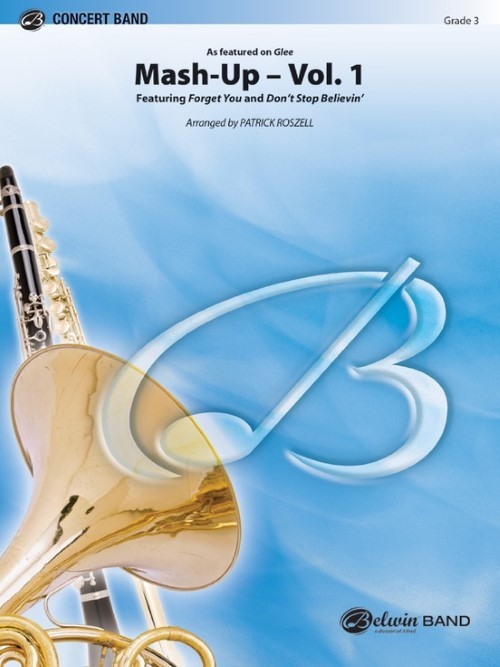 £70.00
£70.00Mash-Up Vol.1 (Concert Band - Score and Parts) - Roszell, Patrick
Cee Lo Green's "Forget You" and Journey's "Don't Stop Believin'" collide in this exciting "Mash-Up" reminiscent of the popular television show Glee. This arrangement presents an exhilarating performance opportunity for your outstanding trumpet and trombone soloists and provides an entertaining experience for bands and audiences alike. Building on the "Mash-Up" concept, the two tunes are joined as one in the show-stopping arrangement.Duration: 3.15
Estimated dispatch 7-14 working days
-
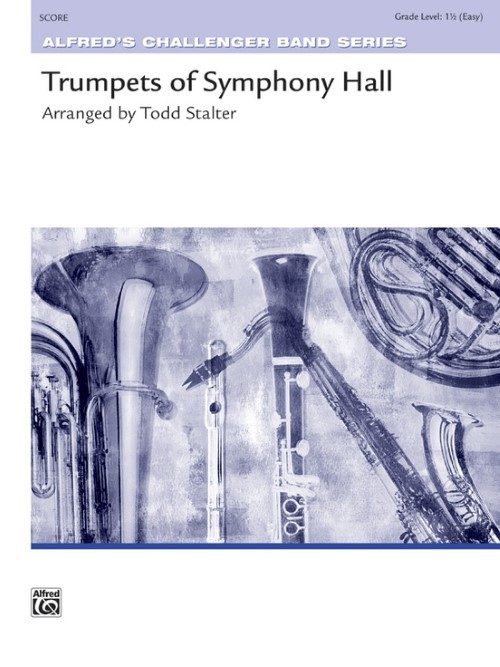 £48.95
£48.95Trumpets of Symphony Hall (Trumpet Section Feature with Concert Band - Score and Parts) - Stalter, Todd
Here is a medley that provides a great opportunity to let your trumpet section be exactly what they want to be, the stars of the show! Performing this delightful arrangement of familiar symphonic themes by Beethoven, Mozart, Dvorak, Haydn, Bach, Offenbach, and Brahms works very well with the trumpets standing in front of the band, but is also effective with them seated within the ensemble. A unique way to vary your concert program and to introduce students to some of the finest orchestral literature, this arrangement will undoubtedly be a highlight for both performer and audience alike!Duration: 2:15
Estimated dispatch 7-14 working days
-
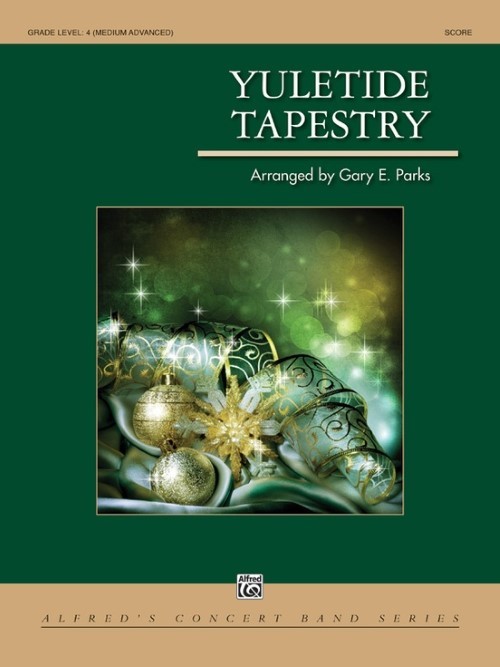 £77.50
£77.50Yuletide Tapestry (Concert Band - Score and Parts) - Parks, Gary E.
Just as the title implies, this arrangement weaves five holiday favourites together into an enjoyable and accessible medley. The percussionists have a chance to show off their varied skills as the band plays through styles ranging from traditional to Latin jazz. Holiday favourites featured are Sing We Now of Christmas, God Rest Ye Merry Gentlemen, The Holly and the Ivy, and Deck the Halls.Duration: 4:45
Estimated dispatch 7-14 working days
-
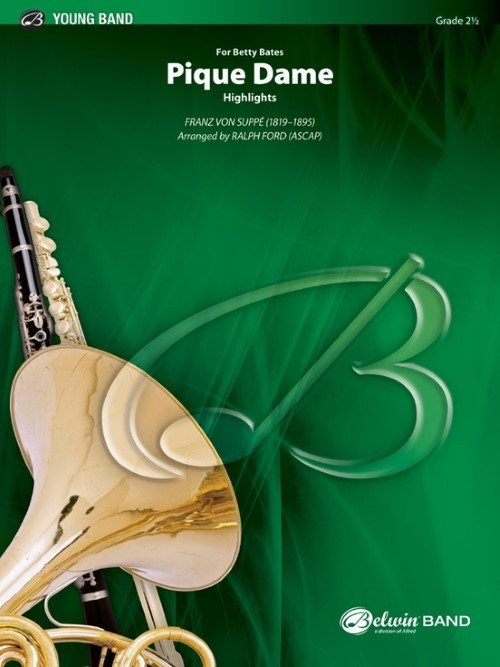 £58.50
£58.50Pique Dame, Highlights (Concert Band - Score and Parts) - Suppe, Franz Von - Ford, Ralph
Perfect as a concert opener, closer, or show piece, "Pique Dame," by the romantic Austrian composer Franz von Suppe is now available, for the first time, in a form accessible for young musicians. A wonderful variety of styles and flavours will make this a must-have for your developing band!Duration: 2:00
Estimated dispatch 7-14 working days
-
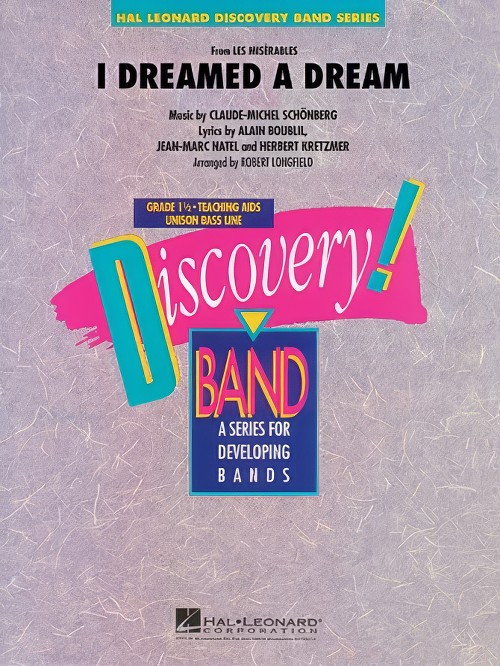 £47.50
£47.50I Dreamed a Dream (from Les Miserables) (Concert Band - Score and Parts) - Longfield, Robert
This stunningly beautiful ballad from the Broadway musical Les Miserables has enjoyed renewed popularity thanks to Susan Boyle, and also the TV show Glee. Robert's arrangement makes this accessible to even very young players.
Estimated dispatch 7-14 working days
